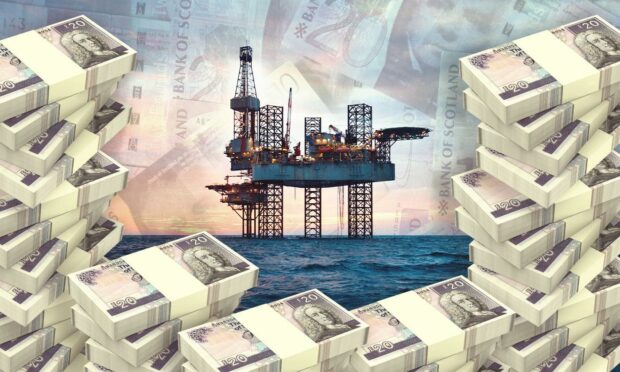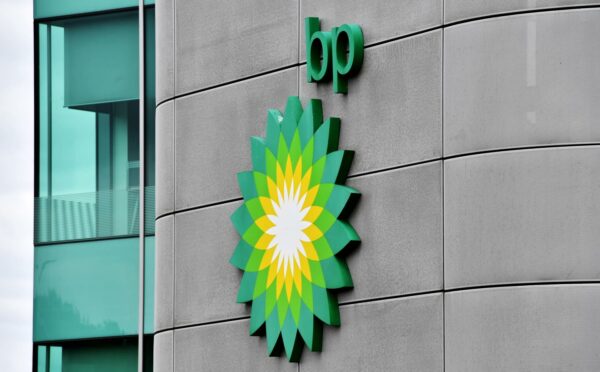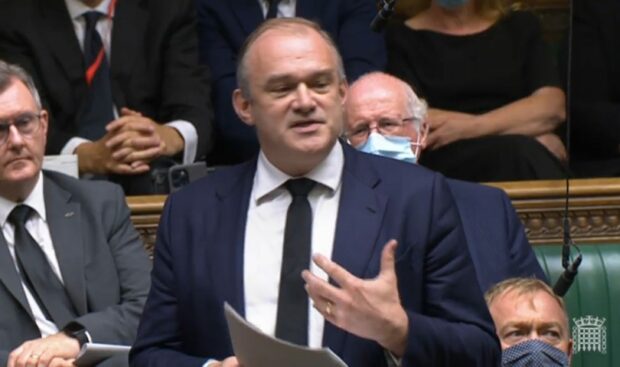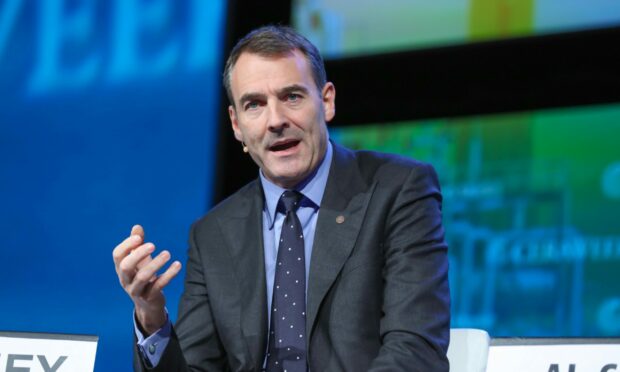Oil and gas giants announced bumper profits, prompting renewed calls for a windfall-tax to help those struggling to pay rising energy bills.
Prices have been rising to unprecedented levels due to an increase in demand for oil and gas across the globe.
Many politicians and campaigners say the high profits demonstrate the need for a one-off levy to support households during a cost of living crisis.
But the plan is opposed by senior Conservatives including UK Chancellor Rishi Sunak who says it would harm investment in the sector.
And it has caused tension between SNP and Green politicians in Scotland.
Here we look at the proposals, who is calling for it, what the oil and gas industry says and whether it could help hard-pressed families during a cost of living crisis.
What is a windfall tax?
A windfall tax is a one-off tax levied by governments against certain industries when economic conditions allow those industries to experience above-average profits.
This targets firms that have ended up benefiting from something they were not responsible for – a windfall.
In this case, increased demand for oil and gas across the globe has profited oil and gas firms.
Energy giants BP and Shell have enjoyed record profits as a result of surging energy prices.
Analysts estimate both firms could make almost £40 billion in profits this year – enough to cover the energy bills of the majority of UK households.
Who is calling for it?
Labour unveiled a plan last month to impose a windfall tax on the profits of North Sea oil and gas companies to fund measures to ease household energy bills.
Under the plan, firms would be forced to pay higher corporation tax for a year to fund £1.2 billion of help for households.
Following publication of BP’s high profits on Tuesday, Ed Miliband, Labour’s shadow climate and net zero secretary, said it is “fair and right” to introduce the tax.
BP’s results demonstrate again that it is fair and right to levy a windfall tax on oil and gas producers to help the millions of families facing the cost of living crisis.
The Conservatives are completely out of step with the mood of the country in rejecting it. https://t.co/OSzDiWBH5a
— Ed Miliband (@Ed_Miliband) February 8, 2022
Consumers face a sharp increase in costs since regulator Ofgem announced energy bills will rise by almost £700 a year from April.
It will be worse in the rural north of Scotland.
The Liberal Democrats have also called for a windfall tax, with party leader Ed Davey saying large profits show the need for “basic fairness”.
Meanwhile, Greenpeace is among the environmental campaign groups who support the move.
The organisation described the profits as a “slap in the face to the millions of people dreading their next energy bill”.
Kate Blagojevic, Greenpeace UK’s head of climate said: “BP and Shell are raking in billions from the gas price crisis while enjoying one of the most favourable tax regimes in the world for offshore drillers.”
What can the UK Government do?
It is the UK Government which has the powers to introduce a windfall tax but Chancellor Rishi Sunak has so far rejected calls.
He said that while a windfall tax “does sound superficially appealing”, such a levy “will deter investment”.
The Tory MP added more investment was needed in the North Sea, which he claimed would help to boost the economy and employment levels.
North-east Tory MPs David Duguid and Andrew Bowie meanwhile wrote to SNP figures in the region urging them to oppose the “dangerous and industry-wrecking tax”.
In a letter, they also claim Labour politicians do not understand that “pushing the industry off a cliff” will end “tens of thousands” of local jobs at once across their constituencies.
Aberdeen South SNP MP Stephen Flynn accused Tory MPs of “wasting time with silly political stunts” and urged the pair to demand the UK Government delivers more to support the energy transition in the north-east.
He added: “Time and again, the Tories have broken their promises to Scotland and have left the UK economy in a state, with a spiralling cost of living crisis and a jobs-destroying hard Brexit costing our economy billions of pounds.”
SNP-Green tension in Scotland
The Scottish Government has appeared more on the fence over the issue, with a divide opening up between SNP and Green coalition partners.
Scotland’s Energy Secretary, Michael Matheson, said he is “not against the idea entirely of some kind of windfall tax”.
But he said this must be delivered in a “fair and reasonable way”.
It echoes similar comments by First Minister Nicola Sturgeon who said while she is not against the idea, the approach must be “fair”.
The SNP leader said the “burden” does not “just fall on people, jobs and investment in the north-east of Scotland” during a time of transition from oil and gas.
The Scottish Greens diverge from the SNP on this issue, with co-leader Patrick Harvie supporting the urgent introduction of a windfall tax.
Have windfall taxes worked before?
Gordon Brown announced a windfall tax in his first budget as chancellor in 1997.
Companies paying the tax were those that had been privatised since 1979 by previous Conservative governments, and included power utilities such as Scottish Power.
Labour argued these companies had been undervalued at privatisation and the tax was calculated as the difference between the price the government sold them and a market valuation based on their profits.
Sir Geoffrey Howe, Margaret Thatcher’s first chancellor, also raised a special £2.4 billion tax on North Sea oil and gas producers in his 1981 budget.
What does the oil and gas industry think?
Oil giant BP posted its highest annual profit in eight years, prompting renewed calls for a windfall tax on fossil fuel firms.
The company made £9.5 billion in the last year, with Shell reporting profits of £14.2 billion in the same timeframe.
In an investor call on Wednesday, BP CEO Bernard Looney argued a windfall tax could hurt investment and production of gas in the region.
He said the UK needs more gas, not less gas and called for extra investment. He added a windfall tax “isn’t probably going to incentivise more investment”.
Mr Looney also pointed to the firm’s plans to spend double the amount of money it invests in the UK through to the middle of this decade, with the “vast majority” spent on the energy transition.
However, it has been suggested this defence is thin because current investment plans were not based on this year’s profits.
Industry body OGUK has also been critical of a windfall tax on oil and gas companies, which it said would cause irreparable damage to the industry and leave consumers even more exposed to global shortages.
The organisation, which represents the UK offshore oil and gas industry, argue such taxes would drive investment down and that the UK’s oil and gas production would plummet, forcing it to import more of its energy.
It has also been highlighted that many of the companies that might be affected by a windfall tax are also investing heavily in low-carbon and renewable energy.
Everything you need to know about the energy price cap and what it means for household bills




